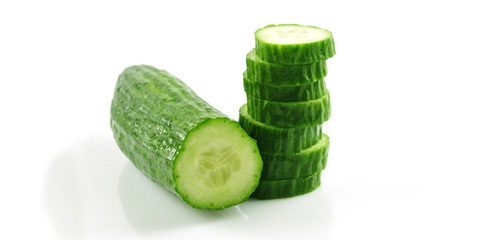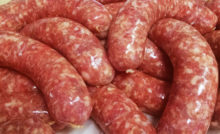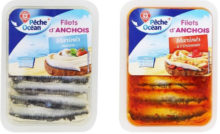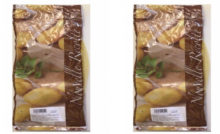



The Enterohaemorrhagic Escherichia Coli bacteria-contaminated cucumbers (EHEC) infected more than 276 people in Germany (2/3 are women) causing at least three deaths. And after the European Commission, other countries are also affected, as the Sweden with ten cases of contamination, the Denmark with four cases, the United Kingdom with three cases and the Netherlands with a case.
Symptoms and modes of transmission
The bacterium E. Enterohemorrhagic e. can cause diarrhea can be accompanied by bleeding, It can lead to kidney problems and result in death. According to the Robert-Koch Institute (RKI), German federal institution in charge of sanitary control and the fight against diseases, This disease is highly contagious and is transmitted by raw but vegetables also by human contact. Being of a 10-day incubation period, It is likely that the number of victims increases in the days to come.
Contamination of vegetables is probably made by human or animal feces (manure for example). The Robert-Koch Institute looks at the question to learn more.
Suspected Spanish producers
The city state of Hamburg conducted four tests on cucumbers. Three results show that contamination comes from two Spanish producers cucumbers, Hortofruticola located in Almería and Bio Franet Pepino, un producteur de concombres “bio” dans la province de Malaga en Andalousie. Que des concombres “bio” soient contaminés peut en surprendre plus d’un, mais voyant la dérive dont les produits “bio” sont victimes, especially abroad, it surprise us less (see the article Industrialization of organic).
The Spanish Minister for Agriculture, Rosa Aguilar, says, to defend his country, « qu’aucun indice “ne prouve” que la contamination des concombres ayant véhiculé la transmission d’une bactérie vienne d’Espagne », rapporte l’AFP. It adds : « It is not known where could happen the contamination and the European Commission has highlighted the fact that it could have occurred outside the country of origin «and expressed concern about the possible «» irreversible damage "for the sector.
Steps are being taken
- German health authorities, anxious in response to the epidemic, advise to avoid consuming cucumbers but also tomatoes and raw salads and more particularly those who come from the North of the Germany.
- The Russia as for it not was, a priori, of victims but said that it could break all importation of vegetables from Germany.
- The Sweden fears that the victims are the face immersed of the iceberg and thinks that the situation is likely to worsen in the coming days.
- In Switzerland, COOP, second great distribution chain, has said : « As a precaution, We immediately removed all cucumbers of Spain, in the Switzerland ». Other large distribution chains say local products in season and are therefore not affected by this problem. One case of disease was declared in Switzerland, It's a woman returning from a trip to Germany.
- In France, the DGCCRF (Directorate-General for competition, Consumption and the Repression of fraud) « surveille de très près la situation "reports it Figaro, even if for the moment no case is declared.
French vegetable growers
While in Germany the loss of turnover is estimated at two million euros per day, and that consumption of salads, tomatoes and cucumbers fell by 90%, rapporte l’AFP, french producers fear psychosis and a decline in consumption in France.
The Federation of producers of tomatoes and cucumbers from France explained in a press release « that of origin France cucumbers are in no way involved in this health crisis and that French production conditions have nothing to do with those practised in Spain both environmentally and socially ».
On the be repeated enough, eat the most local possible, season and still better bio (but local and seasonal), to limit its exposure to the pesticides and other contamination.
Similar articles :
- The outbreak of E. Coli continues to wreak havoc
- E. coli : germinated seeds are the source of the epidemic
- Cucumbers : the France is more spared ?
- Industrialization of organic
- The 'Bio' and its limits
- Reminder of cheeseburgers and bread
- Reminder of Steaks chopped to the East. Coli, Rillettes and Cracklings of ducks to listeria
Main sources :
Recent Posts
Cakes, Candy : Warning on nanoparticles
100 % tested products contained nanoparticles ! [...] Les résultats de cette expérience ont…
How to eliminate toxins ?
After a series of festive meals, caloric menus, alcoholic or carbonated drinks,…
Plastic, not so fantastic!
Plastic pollutes the environment, we all know it. Il faut aussi rappeler que les objets…
How to eat healthy during lunch break ?
At work, lunch breaks are often done on the go, en quelques minutes et…
Eat healthy, it's really possible ?
These last years, le bio et le sain se sont imposés avec insistance dans nos…
Sausages and merguez salmonella
The company L’Atelier du Valois has recalled batches of "Plateau variegated" suite…



View Comments
Eat local and seasonal prevents this kind of danger.
Eat local! We will eat the planet with such slogan. C'est une coquetterie de riche!
Biensur qu'il faut manger local et de saison!! Pourquoi acheter des fraises sans gout venant d'Espagne en plein hiver alors qu'on peut en avoir qui viennent de chez nous au mois de mai (avec d'ailleurs des normes plus strictes donc moins de risques pour la santé) ?? Moi je préfère aussi donner mon argent à des agriculteurs français plutot qu'a des multinationales étrangères qui font de l'esclavage moderne !
Comme l'engrais du bio est le fumier = la merde
il fallait bien qu'un le bio soit contaminé par E. coli!
C'est une remarque évidente. Our environmentalists call even that of "concern preparations! En bon français cela signifie qu'elles le sont! They want the principle of caution for others, but for them, qu'importe la précaution la plus élémentaire!
"A bad composting of animal origin may not on its own explain that cucumbers could be contaminated, in particular for this type of vegetable which is without direct contact with the Earth", However said Jean-François Proust, Head of ForumPhyto. "Should that staff who has handled this compost bio pass then contamination to cucumbers., "or any other defect of hygiene at production or after., He adds. (source : http://www.agriculture-environnement.fr)
"organic manure is manure = crap"
Et ils ont fait comment pendant des centaines d'années pour cultiver leurs terres les paysans ?? Ce n'est pas pour autant qu'ils en tombaient tous malades !
Ce n'est qu'au cours du 20e siècle qu'on a fait des engrais chimiques à base de pétrole. Il y a clairement un souci à l'heure actuelle dans la manière de cultiver (bio or not) c'est à dire intensive et industrielle (always more and always cheaper), d'où des erreurs et contaminations !
ET ils vivaient jusqu'a quel âge les gens pendant des centaines d'années???! Although pui, they were very often falling sick, "One of the main causes of death in the Middle Ages was precisely the rotten food", Der Sonntag.
Et c'est depuis le debut Du 19eme! que la chimie a permis de lutter contre les parasites et microbes et que l'esperance de vie a considerablement augmentée!
Il ne faut pas s'étonner de cette actualité. Il n'y a pas de codex-alimentarius spécifique pour les produits bio... Ce qui veut dire en clair qu'il n'y a aucune obligation de résultat sur la qualité des produits.
Les agriculteurs bio sont d'ailleurs autorisés à utiliser, en contact direct avec les légumes bio qu'ils produisent, of "preparations low preocuppantes". C'est le mot officiel des purains d'orties et autres produits fermentescibles. J'en conclut donc en bonne logique qu'elle sont "a little preocuppantes". It is far from the precautionary principle dear to our eco-friendly. Quand il s'agit des autres, This principle is chilling. Mais quand il s'agit de leurs intérêts, it make a mockery of the most elementary precautions!
A steering wheel
N'oublions pas : wash your hands
Necessarily, à constament manger de l'aseptisé, the unchlorinated, la moindre bacterie gonflée aux pesticides dans votre corps et c'est le drame.
"Escherichia coli (E. coli) is a common bacteria in the digestive tract of human and warm-blooded animals. Most strains of E. coli are safe. Some strains, However, as Enterohemorrhagic strains (EHEC), can be the cause of food-borne diseases (TIA) graves. Transmission to humans occurs through the consumption of contaminated food, raw or poorly cooked ground meat and raw milk by example.[...]
source: http://www.who.int/mediacentre/factsheets/fs125/fr/